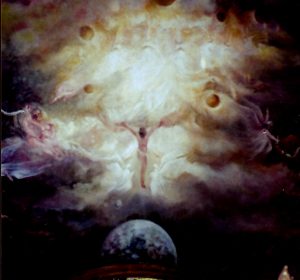 I believe that few “serious scholars” (as they say) see any reason to attribute the first couple of chapters of the Book of Genesis to historical reality. Few actually see any reason to attribute its claims that God fashioned the world in 6 days and created Adam from dust and Eve from his baculum.
I believe that few “serious scholars” (as they say) see any reason to attribute the first couple of chapters of the Book of Genesis to historical reality. Few actually see any reason to attribute its claims that God fashioned the world in 6 days and created Adam from dust and Eve from his baculum.
But I do observe that many “serious biblical scholars” do attribute historical reality to a New Testament book that claims the heavens split apart and that both God and Satan spoke to a man who was baptized by John in the Jordan River.
Both books reference geographical and human facts on the ground. There really is a sky above, land below and a sea teeming with fish. Human males really do exist, lack a baculum, and generally enjoy the companionship of womenfolk, especially when they serve as dutiful helpmates. There really is a Jordan River, an ancient Jerusalem and Judea, and if we can believe that the received text of Josephus is an honest indicator of what he originally wrote, a John the Baptist.
So why do biblical historians reject the historicity of one yet embrace the historicity of the other?
We don’t want to open ourselves as sceptical inquirers who reject miracles on principle.
(I am amazed at the lengths to which quite a few scholars seem to go to prove they are not somehow biased against the supernatural or the miraculous. They do have very logical arguments — analogy etc — but hell, let’s just cut the crap and say “No way! Miracles are an absurd notion and are not allowed into the discussion!” Anti-supernatural bias? Sure! Why not? I’m also biased against the notion that pixies live under toadstools or that teacups orbit Saturn.)
Okay, so maybe we don’t care about opening ourselves to accusations of such bias. But let’s play the game anyway. Continue reading “Gospels and Genesis as historical documents”
